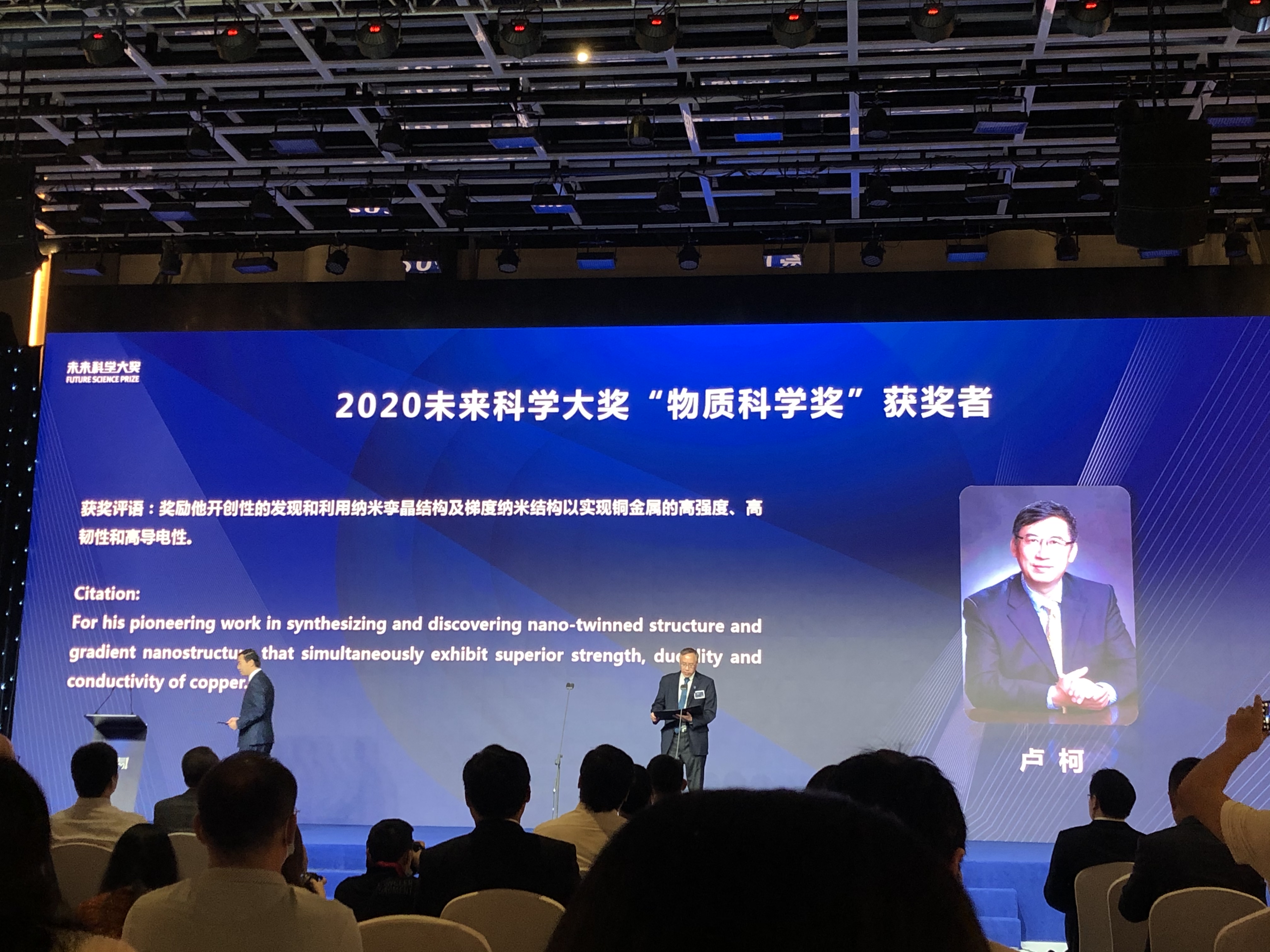
At 10:50 am on September 6, 2020, the 2020 Future Science Award was announced in Beijing. Lu Ke, a researcher at the Institute of Metal Research of the Chinese Academy of Sciences and the deputy governor of the Liaoning Provincial People's Government, won one of the three prizes of the material science award.The bonus is a $ 1 million bonus, and the usage method is not limited.
The future science award was issued to him to reward his pioneering discovery and use of the nano twin structure and gradient nano -structure to achieve the high strength, high toughness and high -conductivity of copper metals.
The intensity of improving metal materials has always been one of the core scientific issues in the field of material physics.Usually the reinforcement of materials is achieved by introducing various defects to obstruct the wrong movement, but the material strength is increased while losing plasticity and conductivity, which leads toInside the inverted relationship.How to overcome this contradiction has become a major scientific problem in the field of international materials for decades.
Luo Ke and his research team discovered that two new nano -structures can increase the strength of copper metal materials without losing their good plasticity and conductivity, and have made significant breakthroughs in the principles of metal materials.
The Luke team found that the introduction of high -density nano twin interface in metal copper can increase the strength of pure copper in order to magnify, while maintaining good stretching plasticity and high conductivity (equivalent to high -pure oxygen copper),Obtained ultra -high -strength high -conductive nano twin copper.This discovery breaks through the intensity-conductivity inversion relationship and open up a new research direction of nano metal materials.The principle of nano twin reinforcement has been verified and applied in a variety of metals, alloys, compounds, semiconductors, ceramics and diamonds, and has become the principle of universal material reinforcement.
The Luke team also discovered the gradient nano structure of the metal and its unique enhancement mechanism.The gradient nano structure can effectively inhibit the concentration of strain and achieve non -localized strain.Pure copper samples with gradient nano-structures are doubled than ordinary crude crystal copper. At the same time, the stretching of plasticity is unchanged. It also breaks through the intensity-plastic inverted relationship of the traditional enhancement mechanism. It is applied to the industry and achieved significant economic benefits.
Lu Ke, male, born in May 1965, was born in Jixian, Henan. He joined the work in April 1990 and joined Jiu San Society in 1993. He is a doctor of engineering.Academician of the Chinese Academy of Sciences, researcher at the Institute of Metal Research of the Chinese Academy of Sciences, director of the National Research Center of Shenyang Materials Science.
Lu Ke is currently the deputy governor of the Liaoning Provincial People's Government and is responsible for the work of science and technology, health, and sports.
Lu Ke said in the conference telephone connection that he felt suddenly awarded the award, and thanked the jury for their job.Materials science is a very old discipline. The award is a huge encouragement to the discipline and inspires them to continue to do more and better work in this discipline.
He said that human beings have been using metal materials for thousands of years, and it is indeed increasingly difficult to improve performance. By making metal materials achieve nano -scale, it greatly improves the nature of metal materials, shows new performance, and rejuvenates new vitality.
The Future Science Award is China's first world -class folk science award. It was founded by the Future Forum in 2016. There are three awards: Life Science Award, Material Science Award, Mathematics and Computer Science Awards.The four donors donated together.
The award adopts nomination invitation system and international peer review system.During the award review process, there are academicians including the Nobel Prize winner, the Turing Award winner, the Fields Award winner, and dozens of academicians of sciences and engineering institutes in the United States, France, Germany and other countries to participate in the nomination and evaluation process of the Future Science Awards.In 2020, the three awards received a total of more than 200 recommendations.
In the future, the scientific award is held in Beijing, China to hold awards ceremony to commend scientists who have made major scientific research results all mankind.The scientific summit held in the same period of the award ceremony aims to invite scientists with great achievements worldwide to share the cutting -edge results of scientific development, discuss cross -disciplinary cross -disciplinary and academic innovation, and promote scientific industrial applications.
Previous winners:
From 2016 to 2019, a total of 16 winners were selected in the Future Science Awards. They are:
Life Science Award
2016 Luk-Ming Dennis Lo
2017 Shi Yigong
2018 Li Jiayang Yuan Longping Zhang Qiqi
2019 Shao Feng
Material Science Award
2016 Xue Qikun
2017 Pan Jianwei
2018 Ma Da is Zhou Qilin Feng Xiaoming
2019 Wang Yifang's land championship (KAM-BIU LUK)
Mathematics and Computer Science Awards
2017 Xu Chenyang
2018 Burn J. Lin
2019 Wang Xiaoyun



